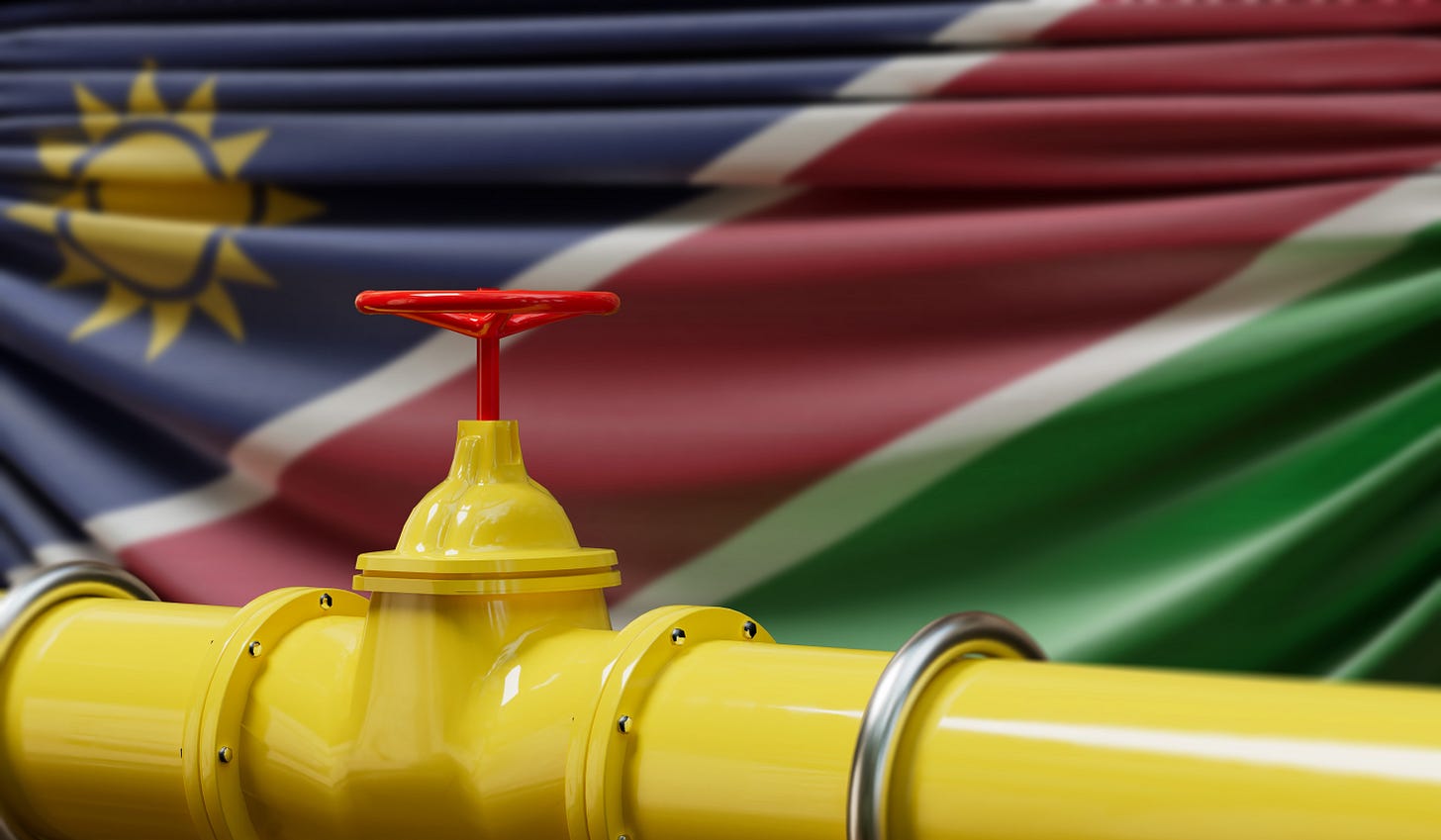Business Developments - Namibia
Hello everyone!
Here’s what’s on 14 North’s radar this week: Namibia. International investors are pursuing the country’s offshore oil and gas opportunities. The country’s mining sector, particularly lithium, is growing, and its comparative political stability is attractive. We are following trends and patterns and how they affect future opportunities and risk.
In recent developments, Canada-based B2Gold has begun the phased closure of its Otjikoto gold mine. The closure process is expected to be completed by 2025. As part of the company’s commitment to environmental stewardship and corporate social responsibility, B2Gold will do extensive rehabilitation work to minimize the environmental impact of the mine’s operations.
Osino Resources, a Canadian mining company focused on Namibia, has announced its best gold drilling results to date. The latest results yield a weighted average grade of 1.57 grams of gold per ton over an average width of 44.2 meters, which compares well with the project’s initial resource, released last October. The company is progressing with its exploration activities, aiming to further develop its gold projects in the country.
Osino’s joint venture partner, Lithium Star, announced a new lithium discovery at the Omaruru Lithium Project. The project, which covers an area of 1,184 km², is located within the prospective Central African Copperbelt. The discovery consists of multiple pegmatite occurrences with lithium-cesium-tantalum (LCT) geochemical signatures. This finding strengthens the project’s potential to contribute to the global lithium supply chain, which is crucial for electric vehicle batteries and renewable energy storage systems.
China-based Huayou Cobalt made a US$ 1.67 million investment in Australia-listed Askari Metals to advance the exploration of its Uis lithium project. Huayou will assist Askari with technical matters and exploration guidance.
Canada’s Deep South Resources won a court case to renew its license for the Haib copper project, overcoming a hurdle in the company’s efforts to develop the significant copper deposit. The successful outcome of the legal dispute is expected to boost Deep South Resources’ prospects, allowing the company to advance the Haib project and capitalize on the increasing global demand for copper, driven by the expanding green energy and electric vehicle sectors.
Namibian Members of Parliament (MPs) have expressed concerns over the lack of benefits for communities surrounding mining areas, despite the mining sector’s significant contribution to the economy. MPs urged the mines ministry to ensure that affected communities benefit from resource extraction, particularly regarding job creation, infrastructure development, and social amenities. The MPs called for stronger implementation of corporate social responsibility programs by mining companies and greater transparency in allocating mining licenses. Additionally, the lawmakers stressed the importance of addressing environmental concerns, particularly water and land pollution, to protect the livelihoods of local communities.
In the Energy sector, Italy-based Eni is eyeing a share of Namibia’s oil and gas bonanza, joining a growing list of major international players keen to tap into the southern African country’s hydrocarbon resources. Eni is negotiating to acquire a stake in one of the offshore blocks owned by the Namibian government. The company is following the footsteps of TotalEnergies, ExxonMobil, and Shell, all of which have secured interests in the country’s rich oil and gas reserves.




